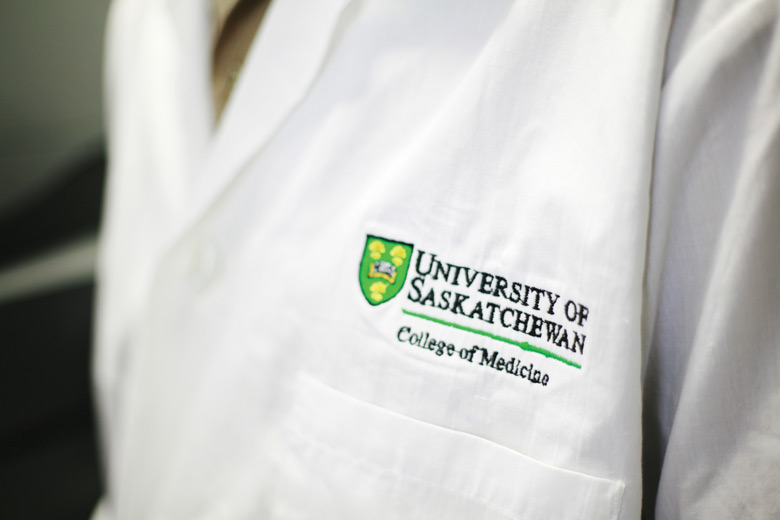College of Medicine is fully accredited: Provost
There appears to be some misinformation about the accreditation status of the University of Saskatchewan’s College of Medicine and its education program for medical students. I would like to clarify the college is fully accredited and will remain so.
By Mark Ferguson In November 2009, the College of Medicine was granted full accreditation for eight years by the Liaison Committee on Medical Education (LCME) and the Committee on the Accreditation of Canadian Medical Schools (CACMS). All schools of medicine operate under 130 standards of accreditation. The U of S undergraduate program in medicine is currently in full compliance with 120 standards and has an action plan in place to achieve full compliance on the remaining 10 within the next year.
In November 2009, the College of Medicine was granted full accreditation for eight years by the Liaison Committee on Medical Education (LCME) and the Committee on the Accreditation of Canadian Medical Schools (CACMS). All schools of medicine operate under 130 standards of accreditation. The U of S undergraduate program in medicine is currently in full compliance with 120 standards and has an action plan in place to achieve full compliance on the remaining 10 within the next year.Accreditation is an ongoing discussion between the college and the accrediting bodies, and the college remains accredited while it works on outstanding items. This is a usual process for medical colleges.
In July 2011, the college received a letter from LCME and CACMS indicating noncompliance with 10 of the accreditation standards. The college was given six months to submit an action plan, which it did in December 2011. In February 2012, the LCME and CACMS informed the college that it had one year to put the plan into action. Throughout this period, the college has communicated fully with its students as well as with faculty, staff and administrators who are responsible for making the changes. The July 2011 letter has been made widely available within the college. The action plan was developed in consultation and shared within the college.
The accreditation standards on which the college is working relate primarily to matters of academic administration and are not issues of health and safety. They include matters such as how teaching duties are assigned, how grades are recorded in common databases, and whether students at different sites have access to similar study space.
All of the standards in question are the university's responsibility to resolve. While these are not trivial matters and in some cases a great deal of work will be required, the university is on track with its plan to ensure compliance, and will do whatever is necessary to ensure continuing full accreditation for the program.
The areas the college's action plan is currently addressing include:
- providing a clear process for assigning education responsibility to and ensuring the accountability of salaried clinical faculty
- increasing monitoring of the nature of clinical experiences, the level of student responsibility or clinical settings
- increasing information sharing of the objectives of a medical education program to medical students, faculty, residents and others with direct responsibility for medical student education and assessment
- increasing documentation regarding residents who teach medical students have received a copy of the clerkship learning objectives
- creating a centralized review of student performance data or student evaluation data
- removing delays in reporting students' final marks
- increasing consistency in formal mid-rotation feedback for students
- increasing awareness among graduate students of the existence of a mistreatment policy
- ensuring the study space in Regina is sufficient to meet the needs of the current class size
- ensuring clinical department chairs are well informed about the status of development of the Regina campus
The University of Saskatchewan is committed to providing more information on the College of Medicine's progress on accreditation compliance in the days to come.

